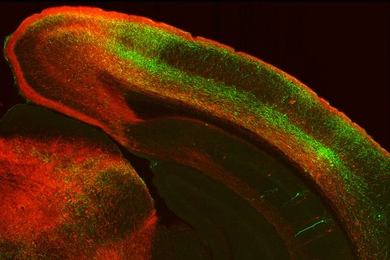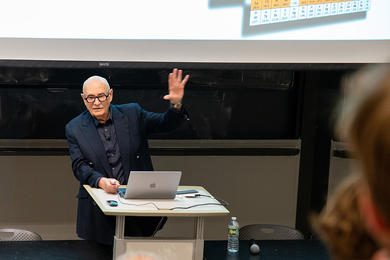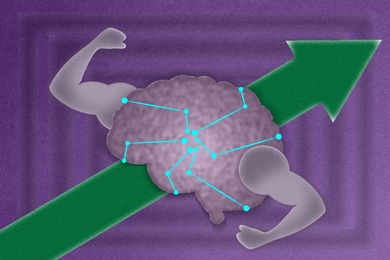“Japanese psychology,” wrote Joseph Grew, the United States ambassador to Japan at the outset of World War II, is “fundamentally unlike that of any Western nation.” The Japanese mentality “cannot be measured by our own standards of logic,” he added. More than 60 years later, Paul Bremer, viceroy in U.S.-occupied Iraq, assessed one of that country’s political leaders. “Ayatollah Sistani operated on a different rational plane than we Westerners,” Bremer wrote in his memoir.
To MIT historian John Dower, these two comments, made in two very different settings, are nonetheless part of one historical thread: a long-running American insistence that Western civilization has a purchase on true rationality which other nations and societies do not. After the terrorist attacks of Sept. 11, 2001, says Dower, an expert on Japan and modern warfare, the Bush administration, even more than was commonly recognized, derived its descriptions of America’s new enemies from the older ideas and language of World War II. In a speech President George W. Bush gave on Aug. 30, 2005, roughly marking the 60th anniversary of the Allies’ victory in Japan, Dower notes, Bush emphasized how the United States’ ongoing struggle in Iraq was, like the struggle against the Japanese, a fight against “kamikaze pilots on suicidal missions” and “commanders animated by a fanatical belief” in their own cause.
“One can almost picture White House speechwriters working from a crib on World War II highlighted with a magic marker,” Dower writes in his new book, Cultures of War: Pearl Harbor / Hiroshima / 9-11 / Iraq, published this month by W.W. Norton and the New Press.
The book is partly a critique of American foreign policy of the last decade, and partly an argument against the notion that America’s wars in Afghanistan and Iraq reflect a newly emerging “clash of civilizations” primarily driven by cultural or religious conflict, an idea popularized by the late political scientist Samuel Huntington, among others. If it were a new clash, Dower believes, American leaders would not have been recycling such familiar tropes. Moreover, asserts Dower, in launching war in Iraq, America became enveloped in the same irrational “culture of war” as its past enemies. Whereas the 20th-century historian Samuel Eliot Morison once derided Japan’s “strategic imbecility” in attacking Pearl Harbor in December 1941, Dower thinks the United States displayed the same quality by attacking Iraq.
“We propagate this whole notion of westerners being rational and scrupulously moral,” says Dower, now a professor emeritus. “It’s part of the mythmaking we do. But the whole ‘clash of civilizations’ notion doesn’t hold water. That doesn’t mean we’re all the same. But when you place things in comparative perspective and think about war itself as a culture, there are many things we can learn about ourselves as well as others. Morison said the world had never seen such strategic imbecility. Well, now we have again.”
‘We so sanitize our history’
Dower agrees that America suffered a trauma in the form of the 2001 terrorist attacks. “What the terrorists did on Sept. 11 was an atrocity,” says Dower. “Those were crimes against humanity.” His book began as what he expected to be a short study of the similarities and differences between Pearl Harbor and Al Qaeda’s attack 60 years later.
Yet the occupation of Iraq in 2003 moved the book in a more critical direction, as he began to think America was roughly recreating imperial Japan’s blunders of the 1930s and 1940s. To be sure, Dower acknowledges, “at first glance it seems outlandish” to make this comparison. And yet, as he asserts, “top-level policymakers in both cases underestimated the psychology and resourcefulness of their adversary and plunged into a conflict they could not control,” and “tended to view disagreement as dysfunction,” a habit of “groupthink” that Dower argues characterized both Operation Iraqi Freedom and Japan’s war policies. In the latter case, Dower notes, incompatible army and navy priorities were buried under a need for the appearance of consensus within the government. Like Japan’s rulers before them, high-ranking American officials, Dower concludes, became unwilling to take positions unpopular with their colleagues and superiors. As Emperor Hirohito’s “advisers hesitated to tell the sovereign that his holy war had become a debacle,” Dower writes, Bush’s advisers entered a state of “denial” about the troubles in Iraq.
Dower also explores additional broad characteristics of the “culture of war.” He places contemporary terror-bombing in a larger military context, noting that the Allied air war against Germany and Japan deliberately targeted civilians to destroy morale, culminating in the earlier “Ground Zeroes” of Hiroshima and Nagasaki. In a concluding section, Dower asserts that there have also been great differences in the way the United States has used its military power in recent times; he delineates the differences between occupied Japan and occupied Iraq, and argues that America has changed markedly in institutional and ideological terms since World War II.
For one thing, Dower says, the United States failed to meet the moral standards it has tried to codify after previous wars — as can be seen in the torture of prisoners in Iraq, for instance. “Someone like myself admires America’s values very deeply,” says Dower. “I feel one of the things America should do is live up to and really embody the values we say we have.”
Dower is well-qualified to engage in this broad historical comparison. His previous book, “Embracing Defeat: Japan in the Wake of World War II,” won the Pulitzer Prize and the National Book Award, while a previous volume, “War Without Mercy: Race and Power in the Pacific War,” won the National Book Critics Circle Award. Colleagues who have already read Cultures of War in manuscript form have reacted favorably.
“It’s a wonderful analysis of the dynamics of war,” says Herbert Bix, a historian of Japan at Binghamton University in New York. “I like its emphasis on the correctness of the moral attitude the United States had in the post-World War II years. That attitude to the law has become dissipated today.”
It is less clear if the trajectories of imperial Japan and contemporary America converge on common “cultures of war,” as Dower suggests. “I’m not sure if the term comes alive in and of itself,” Bix says. He adds that to a slightly greater degree than Dower, he sees the path from Sept. 11 to Iraq as the product of “the steady expansion of the national-security state after World War II,” meaning the growth of the military, the acquisition of power by the presidency, and the influence of security agencies. Dower, while not ignoring these factors, is slightly more inclined to characterize policy decisions as being informed by an encompassing culture of war-making in the modern world.
While unsure of the reaction Cultures of War will produce, Dower hopes it will spur at least some readers to think critically about the policies and actions that, he says, have hurt America’s credibility around the world. “We pride ourselves on tolerating dissent, but in fact we’re ferocious about limiting it,” says Dower. “We so sanitize our history. In sheer practical terms, this makes us incapable of understanding what we look like to others, and why others may not share our perspective.”
Yet while Dower thinks critical self-reflection is a necessary part of building a more stable world, he is not especially optimistic that today’s leaders and citizens will learn from their mistakes. Whether “humankind worldwide will one day find the ability to truly control and transcend” its ability to wage such destructive wars “is, at best, highly uncertain,” Dower writes. “Constructive change and deep cultures of peace will come, if at all, incrementally; and that is where hope must reside.”
To MIT historian John Dower, these two comments, made in two very different settings, are nonetheless part of one historical thread: a long-running American insistence that Western civilization has a purchase on true rationality which other nations and societies do not. After the terrorist attacks of Sept. 11, 2001, says Dower, an expert on Japan and modern warfare, the Bush administration, even more than was commonly recognized, derived its descriptions of America’s new enemies from the older ideas and language of World War II. In a speech President George W. Bush gave on Aug. 30, 2005, roughly marking the 60th anniversary of the Allies’ victory in Japan, Dower notes, Bush emphasized how the United States’ ongoing struggle in Iraq was, like the struggle against the Japanese, a fight against “kamikaze pilots on suicidal missions” and “commanders animated by a fanatical belief” in their own cause.
“One can almost picture White House speechwriters working from a crib on World War II highlighted with a magic marker,” Dower writes in his new book, Cultures of War: Pearl Harbor / Hiroshima / 9-11 / Iraq, published this month by W.W. Norton and the New Press.
The book is partly a critique of American foreign policy of the last decade, and partly an argument against the notion that America’s wars in Afghanistan and Iraq reflect a newly emerging “clash of civilizations” primarily driven by cultural or religious conflict, an idea popularized by the late political scientist Samuel Huntington, among others. If it were a new clash, Dower believes, American leaders would not have been recycling such familiar tropes. Moreover, asserts Dower, in launching war in Iraq, America became enveloped in the same irrational “culture of war” as its past enemies. Whereas the 20th-century historian Samuel Eliot Morison once derided Japan’s “strategic imbecility” in attacking Pearl Harbor in December 1941, Dower thinks the United States displayed the same quality by attacking Iraq.
“We propagate this whole notion of westerners being rational and scrupulously moral,” says Dower, now a professor emeritus. “It’s part of the mythmaking we do. But the whole ‘clash of civilizations’ notion doesn’t hold water. That doesn’t mean we’re all the same. But when you place things in comparative perspective and think about war itself as a culture, there are many things we can learn about ourselves as well as others. Morison said the world had never seen such strategic imbecility. Well, now we have again.”
‘We so sanitize our history’
Dower agrees that America suffered a trauma in the form of the 2001 terrorist attacks. “What the terrorists did on Sept. 11 was an atrocity,” says Dower. “Those were crimes against humanity.” His book began as what he expected to be a short study of the similarities and differences between Pearl Harbor and Al Qaeda’s attack 60 years later.
Yet the occupation of Iraq in 2003 moved the book in a more critical direction, as he began to think America was roughly recreating imperial Japan’s blunders of the 1930s and 1940s. To be sure, Dower acknowledges, “at first glance it seems outlandish” to make this comparison. And yet, as he asserts, “top-level policymakers in both cases underestimated the psychology and resourcefulness of their adversary and plunged into a conflict they could not control,” and “tended to view disagreement as dysfunction,” a habit of “groupthink” that Dower argues characterized both Operation Iraqi Freedom and Japan’s war policies. In the latter case, Dower notes, incompatible army and navy priorities were buried under a need for the appearance of consensus within the government. Like Japan’s rulers before them, high-ranking American officials, Dower concludes, became unwilling to take positions unpopular with their colleagues and superiors. As Emperor Hirohito’s “advisers hesitated to tell the sovereign that his holy war had become a debacle,” Dower writes, Bush’s advisers entered a state of “denial” about the troubles in Iraq.
Dower also explores additional broad characteristics of the “culture of war.” He places contemporary terror-bombing in a larger military context, noting that the Allied air war against Germany and Japan deliberately targeted civilians to destroy morale, culminating in the earlier “Ground Zeroes” of Hiroshima and Nagasaki. In a concluding section, Dower asserts that there have also been great differences in the way the United States has used its military power in recent times; he delineates the differences between occupied Japan and occupied Iraq, and argues that America has changed markedly in institutional and ideological terms since World War II.
For one thing, Dower says, the United States failed to meet the moral standards it has tried to codify after previous wars — as can be seen in the torture of prisoners in Iraq, for instance. “Someone like myself admires America’s values very deeply,” says Dower. “I feel one of the things America should do is live up to and really embody the values we say we have.”
Dower is well-qualified to engage in this broad historical comparison. His previous book, “Embracing Defeat: Japan in the Wake of World War II,” won the Pulitzer Prize and the National Book Award, while a previous volume, “War Without Mercy: Race and Power in the Pacific War,” won the National Book Critics Circle Award. Colleagues who have already read Cultures of War in manuscript form have reacted favorably.
“It’s a wonderful analysis of the dynamics of war,” says Herbert Bix, a historian of Japan at Binghamton University in New York. “I like its emphasis on the correctness of the moral attitude the United States had in the post-World War II years. That attitude to the law has become dissipated today.”
It is less clear if the trajectories of imperial Japan and contemporary America converge on common “cultures of war,” as Dower suggests. “I’m not sure if the term comes alive in and of itself,” Bix says. He adds that to a slightly greater degree than Dower, he sees the path from Sept. 11 to Iraq as the product of “the steady expansion of the national-security state after World War II,” meaning the growth of the military, the acquisition of power by the presidency, and the influence of security agencies. Dower, while not ignoring these factors, is slightly more inclined to characterize policy decisions as being informed by an encompassing culture of war-making in the modern world.
While unsure of the reaction Cultures of War will produce, Dower hopes it will spur at least some readers to think critically about the policies and actions that, he says, have hurt America’s credibility around the world. “We pride ourselves on tolerating dissent, but in fact we’re ferocious about limiting it,” says Dower. “We so sanitize our history. In sheer practical terms, this makes us incapable of understanding what we look like to others, and why others may not share our perspective.”
Yet while Dower thinks critical self-reflection is a necessary part of building a more stable world, he is not especially optimistic that today’s leaders and citizens will learn from their mistakes. Whether “humankind worldwide will one day find the ability to truly control and transcend” its ability to wage such destructive wars “is, at best, highly uncertain,” Dower writes. “Constructive change and deep cultures of peace will come, if at all, incrementally; and that is where hope must reside.”






